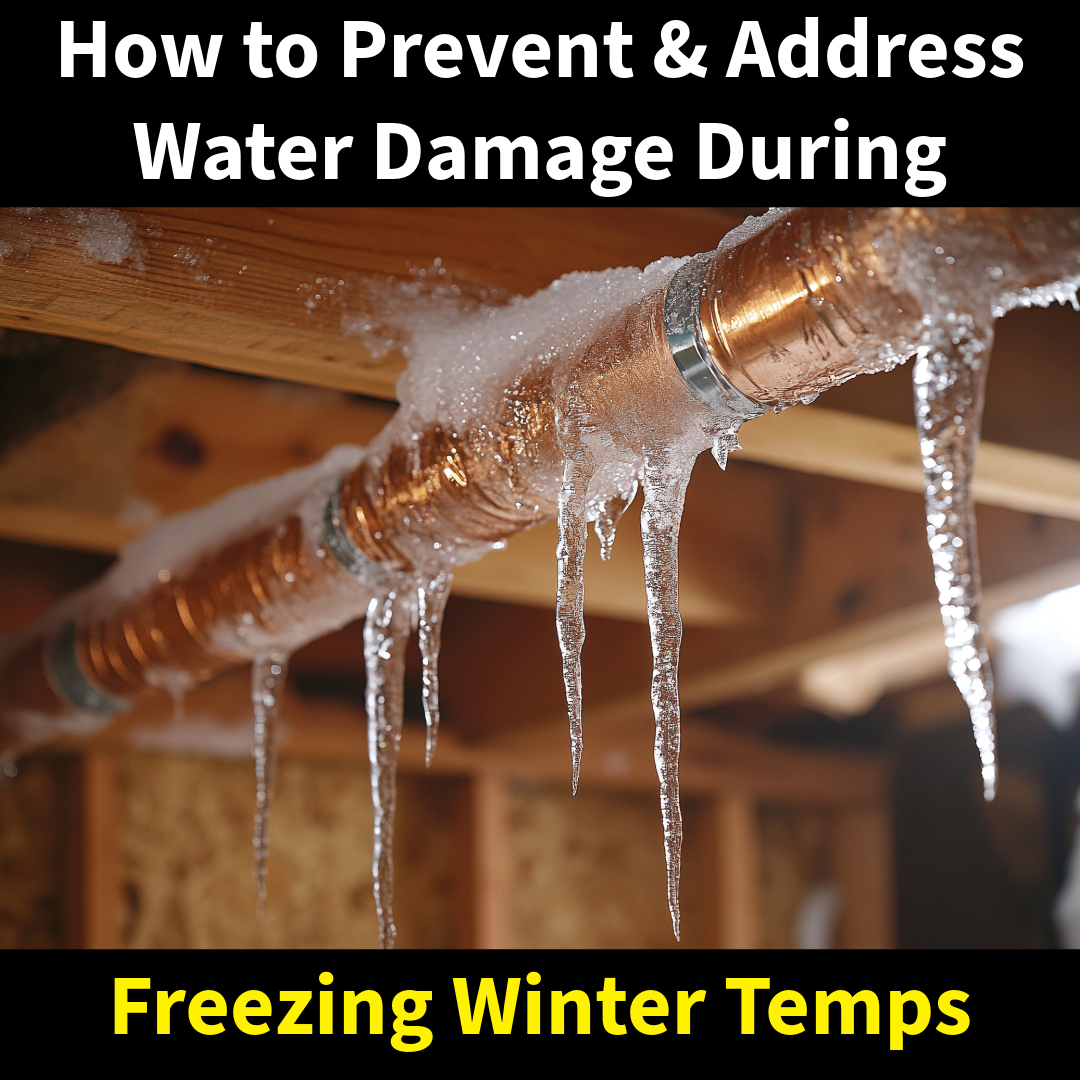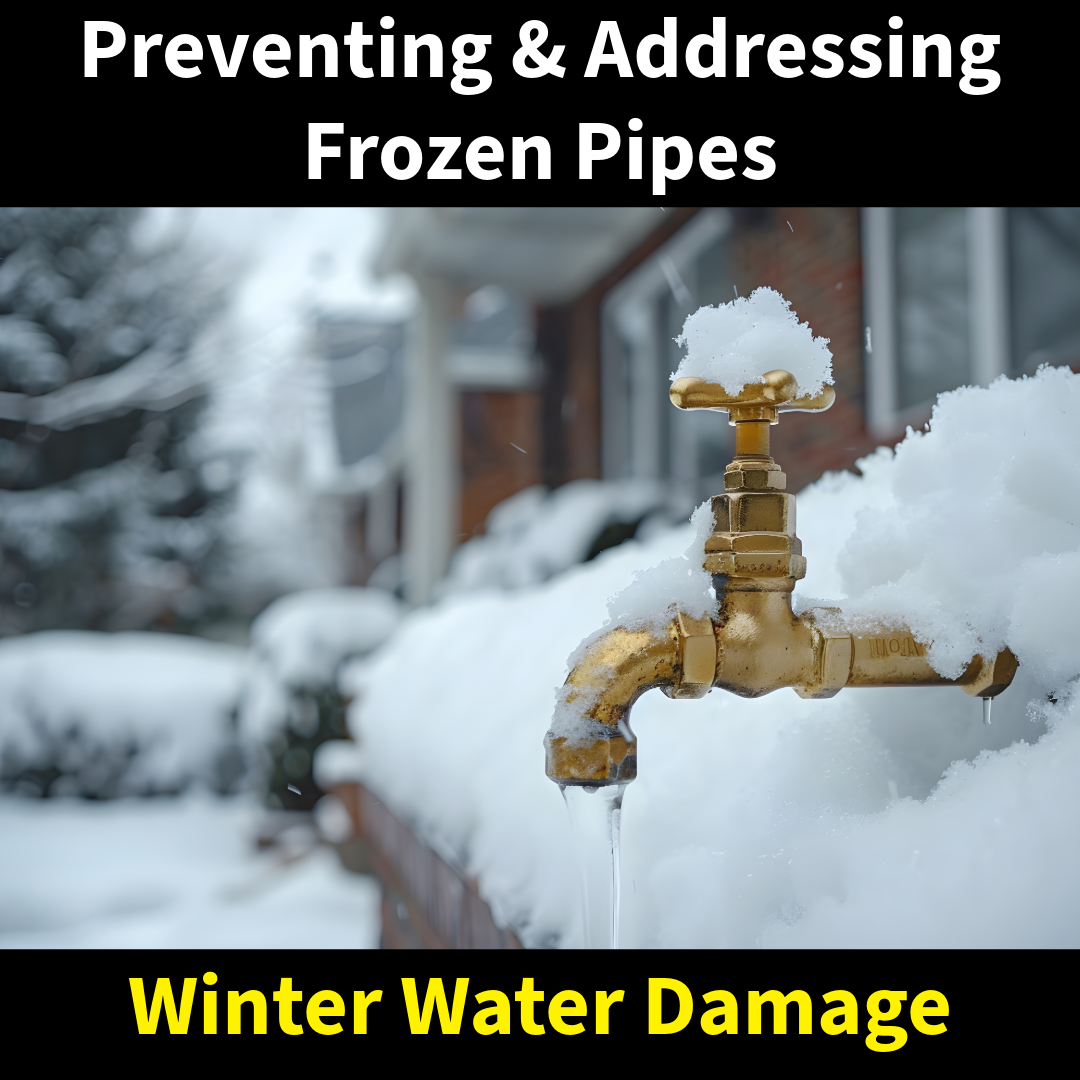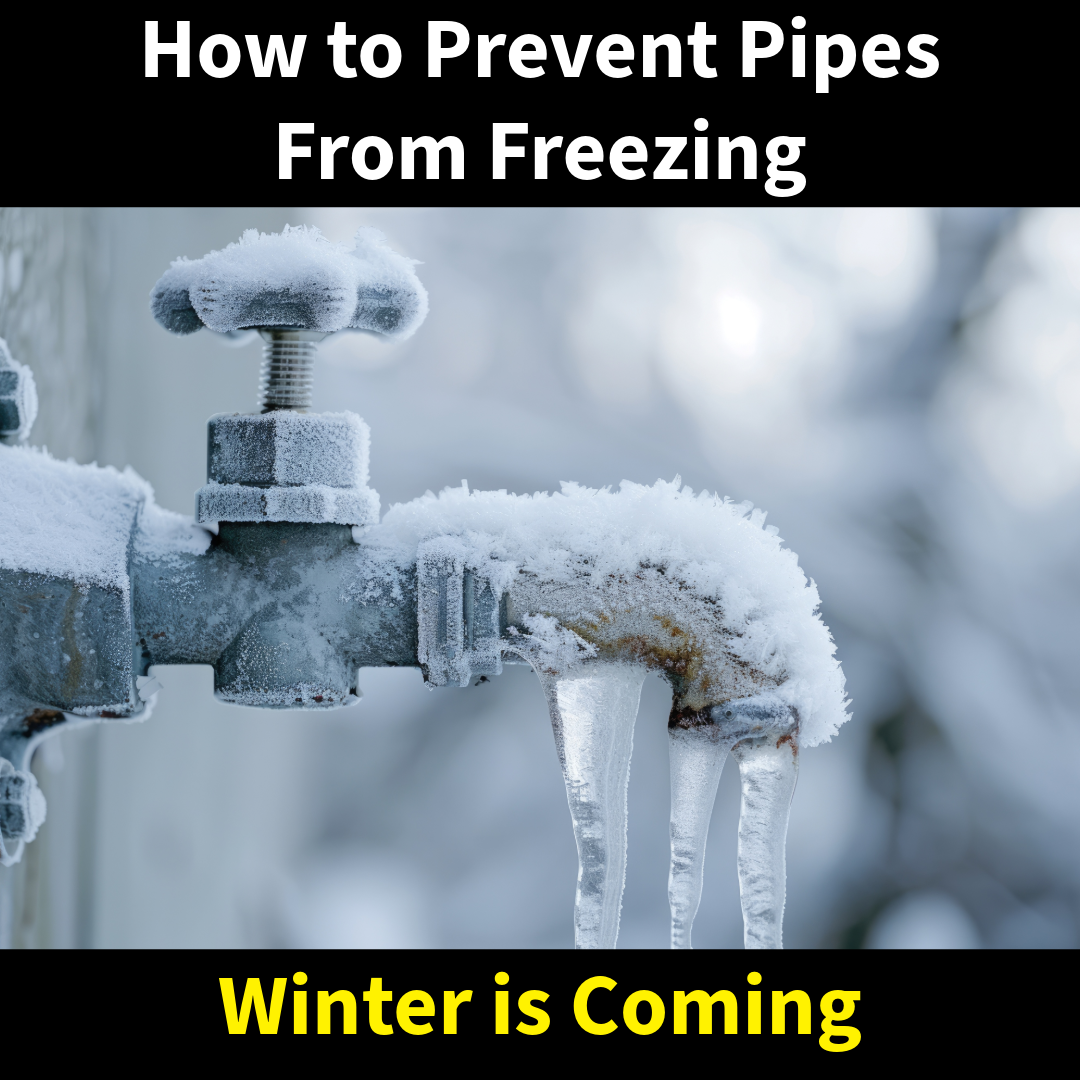Winter brings freezing temperatures, and while the snowy landscapes can be picturesque, the risk of water damage increases significantly during this time. Burst pipes, ice dams, and other weather-related issues can wreak havoc on homes and businesses. In this blog, we’ll explore practical ways to prevent water damage and discuss what to do if it occurs.
Common Causes of Water Damage in Freezing Temperatures
- Frozen and Burst Pipes When temperatures drop, water inside pipes can freeze and expand, causing pipes to crack or burst. This can lead to significant water damage once the ice thaws and water begins to flow again.
- Ice Dams Ice dams form when snow on the roof melts and refreezes near the edges, preventing proper drainage. The trapped water can seep under shingles and into your home, causing leaks and water damage.
- Blocked Gutters Gutters clogged with debris can cause water to back up and freeze, leading to ice dams and water overflow that can damage walls, ceilings, and foundations.
- Foundation Cracks Water that seeps into small foundation cracks can freeze and expand, worsening the cracks and potentially causing flooding in basements or crawlspaces.
Tips to Prevent Water Damage During Freezing Temperatures
- Insulate Pipes Use foam insulation or pipe sleeves to keep exposed pipes warm, especially in unheated areas like basements, attics, and garages.
- Maintain Indoor Temperatures Keep your thermostat set to at least 55°F, even if you’re away. Consistent heating prevents pipes from freezing.
- Seal Cracks and Leaks Inspect your home for drafts or leaks near windows, doors, and walls. Use caulk or weather stripping to seal these areas.
- Clean Gutters Regularly Remove leaves, twigs, and debris from gutters to ensure proper drainage and prevent ice buildup.
- Allow Faucets to Drip During extreme cold, let faucets drip slightly to keep water moving and reduce the risk of freezing in the pipes.
- Inspect Your Roof Ensure your roof is in good condition and address any missing shingles or weak spots before winter sets in. This helps prevent ice dams.
What to Do if Water Damage Occurs
If you experience water damage during freezing temperatures, act quickly to minimize damage:
- Shut Off the Water Supply Locate and turn off the main water valve to prevent further flooding.
- Remove Excess Water Use towels, mops, or a wet/dry vacuum to remove standing water. Avoid using regular household vacuums for this task.
- Call a Professional Water Damage Restoration Service Mold Solutions & Inspections specializes in water damage restoration and can quickly assess the damage, remove water, and begin the drying and restoration process.
- Document the Damage Take photos and videos of the affected areas for insurance purposes. Notify your insurance provider promptly.
- Monitor for Mold Growth Water damage can lead to mold growth within 24-48 hours. A professional inspection can help identify and address mold issues early.
Why Choose Mold Solutions & Inspections for Water Damage Restoration
At Mold Solutions & Inspections, we understand how overwhelming water damage can be, especially during freezing winter months. Our experienced team is on-call 24 hours a day and uses advanced equipment and techniques to:
- Quickly remove water and dry affected areas.
- Prevent secondary damage like mold growth.
- Restore your home or business to its original condition.
Don’t let freezing temperatures disrupt your peace of mind. Contact us today for expert water damage restoration services. We’re here to help you stay safe and dry all winter long!


